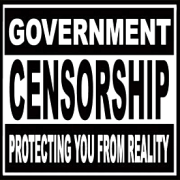 There’s been some post-Black Friday debate as to whether the Department of Justice’s move against international online poker companies – which included the seizure of their .com domains – was designed in part to create a business void that could then be filled by US land-based casino companies. Conspiracy theorists may find more grist for their mills in the latest version of the proposed US internet censorship bill. While it technically has nothing to do with online gambling, it does demonstrate that the authorities in the United Police States of America are not above doing favors for private citizens/companies while forging public policy.
There’s been some post-Black Friday debate as to whether the Department of Justice’s move against international online poker companies – which included the seizure of their .com domains – was designed in part to create a business void that could then be filled by US land-based casino companies. Conspiracy theorists may find more grist for their mills in the latest version of the proposed US internet censorship bill. While it technically has nothing to do with online gambling, it does demonstrate that the authorities in the United Police States of America are not above doing favors for private citizens/companies while forging public policy.
Now formally dubbed the PROTECT IP Act (Preventing Real Online Threats to Economic Creativity and Theft of Intellectual Property Act), the proposed legislation would not only allow the DoJ to seize domains they suspected of having some connection to infringement of a US copyright holder’s intellectual property, search engines would also be required to stop returning results for seized domain names. According to a detailed summary of the PROTECT IP Act obtained by Ars Technica, that last clause “responds to concerns raised that search engines are part of the ecosystem that directs Internet user traffic and therefore should be part of the solution.”
The legislation would also grant rights holders a private right of action, allowing them to seek court orders on their own, without waiting for government agencies to intervene on their behalf. This would be an early Christmas present for domain-hungry copyright trolls like Righthaven. Google’s Kent Walker told a House Judiciary Committee hearing as much in April, warning that a private right of action “would invite suits by ‘trolls’ to extort settlement from intermediaries or sites who are making good-faith efforts to comply with the law.” FYI, that House hearing was run by Rep. Bob Goodlatte (R-VA), co-sponsor of the legislation that ultimately became the UIGEA. So you know he’ll do the right thing for America…